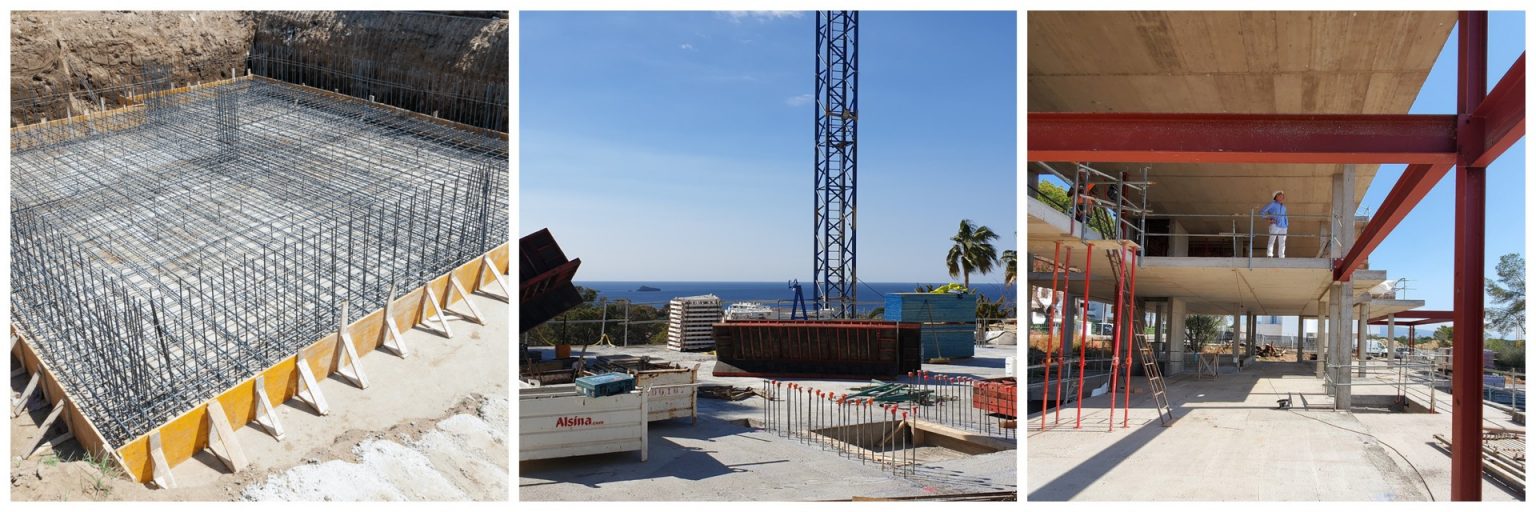Seguro Decenal y OCT – Ten-Year Insurance and Technical Control Body
The Obligation to Insure Structural Works in New Construction and Its Importance in the Property Market

The Seguro Decenal (Ten-Year Insurance) was introduced in Spain by the Ley de Ordenación de la Edificación (LOE, 1999) to protect buyers against serious hidden structural defects in buildings.
Its objectives were to align Spanish legislation with European standards, strengthen the responsibility of building agents, and, after the construction scandals of the 1990s, curb speculative and low-quality practices.
The insurance is a prerequisite for obtaining financing, the Licencia de Primera Ocupación (First Occupancy Licence), and registration in the Registro de la Propiedad (Land Registry). There are exceptions for self-developers (autopromotores), but only if the dwelling is not sold within the first ten years.
- What Is the Seguro Decenal?
The Seguro Decenal is a ten-year warranty policy covering structural damage that could compromise the stability of the building.
In the event of such damage, the insurance company assumes the costs of repair or compensation, even if the construction company no longer exists.
- Is the Seguro Decenal Mandatory?
The insurance is legally mandatory in the following cases:
- For all new-build projects developed by a promoter and intended for sale.
- For dwellings sold to a third party within ten years of completion.
Although the law allows exceptions for self-developers, it is always recommended to contract the insurance, since if the dwelling is sold within the ten-year period, the notary will require proof of coverage.
Retroactive insurance is disproportionately expensive and is not always accepted in property transactions.
- The Role of the OCT – Organismo de Control Técnico (Technical Control Body)
The Seguro Decenal requires prior supervision of the works by an OCT – Organismo de Control Técnico (Technical Control Body), responsible for structural quality control.
Functions of the OCT:
- Before construction: review of structural drawings and the geotechnical report.
- During construction: inspection of all works affecting the structure (foundations, slabs, load-bearing elements). Any deficiencies must be corrected before proceeding.
- After completion: issue of a final report, which is an essential requirement for formalising the insurance policy.
The OCT provides an additional guarantee of quality for both the developer and the buyer.
- Why Is the Seguro Decenal Important?
- Without it, a dwelling cannot be sold during the first ten years after completion. Many notaries refuse to formalise sales when only a retroactive policy is presented.
- It offers buyers and owners strong legal and financial protection against serious structural defects.
- It provides an additional layer of independent quality control during the construction process.
- Organisation in Our Projects
In our projects, the contracting and coordination of both the OCT and the Seguro Decenal are managed through the Arquitecto Técnico (Technical Architect / Aparejador) or the Project Manager:
- Selection and appointment of the OCT.
- Coordination of inspections during construction.
- Management of the necessary documentation for the insurance policy.
Conclusion
The Seguro Decenal is both a legal obligation and an effective protection tool for developers and buyers when the construction company is no longer able to assume responsibility.
The involvement of an OCT is not only a prerequisite for the insurance but also an added guarantee of quality that contributes to maintaining and increasing the resale value of the property.